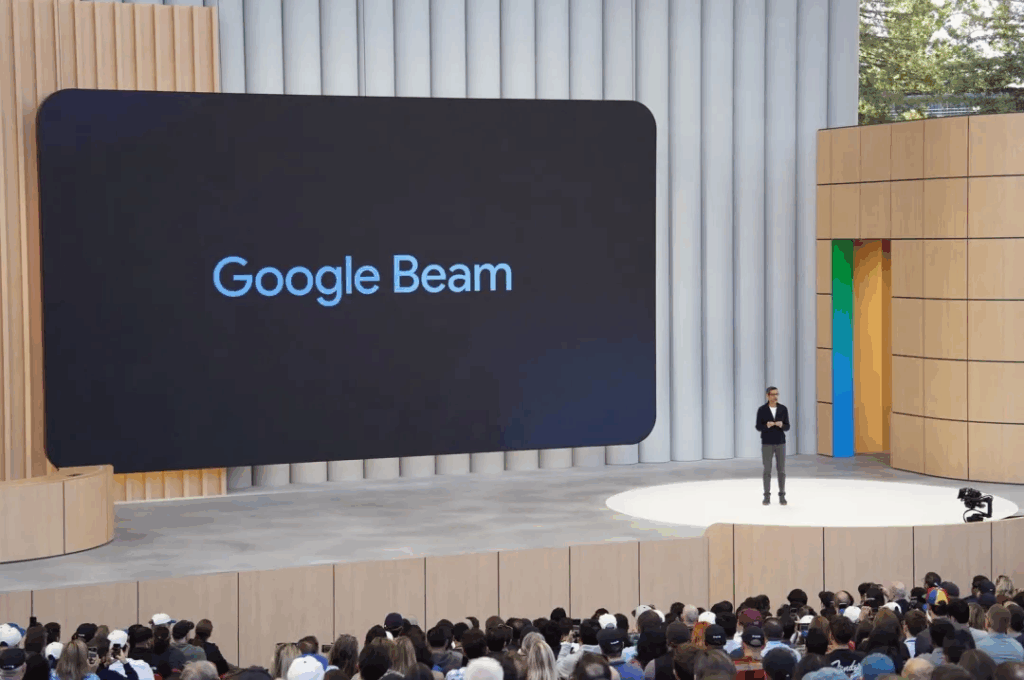MOUNTAIN VIEW, CA (Reporting from Toronto, ON) – May 26, 2025 – While artificial intelligence and the new Android XR platform took center stage at Google I/O 2025, the developer conference also delivered a host of other notable advancements. These include the futuristic Google Beam telepresence system, significant design and AI upgrades across the Android ecosystem, and new intelligent features for widely used applications like Gmail and Google Docs.
Google Beam: “3D FaceTime” Nears Reality

Google unveiled Google Beam, an AI-first video communication platform born from its “Project Starline” research. Beam aims to create a highly realistic sense of co-presence for remote interactions. The system uses a new video model to transform 2D video into a 3D experience, captured by a six-camera array and rendered on a 3D light field display. Key features include millimeter-precise head-tracking and 60fps real-time operation.
Described by some as “3D FaceTime,” Google is collaborating with HP on Beam, with the first devices expected for early customers later this year. While the technology was lauded as “cool,” some observers questioned its mainstream appeal and noted the potentially high cost and extensive hardware requirements, though acknowledging potential benefits in specialized environments like healthcare.
Android Ecosystem Gets a Makeover and AI Boost
The Android Show: I/O Edition detailed substantial updates for the broader Android world. A “bold new design” is coming to the ecosystem, impacting Android 16 and Wear OS 6 with a “fresh and dynamic look and feel.”
This includes the introduction of Material 3 Expressive, an evolution of Material Design focused on enhancing app appeal through emotional UX, new components, and motion physics.
AI integration is also deepening across Android devices. Google confirmed that in the coming months, Gemini will be brought to watches, car dashboards (via Android Automotive OS and Android Auto), and TVs.
For developers, Google announced new tools and APIs for building AI-powered Android apps, including expanded support for on-device small language models (SLMs) and new ML Kit GenAI APIs. The Androidify sample app, which creates an Android robot avatar from a selfie, was showcased. Enhanced safety and security features for Android were also detailed.
Smarter Apps: Gmail and Docs
Specific Google applications are also set to become more intelligent:
- Gmail will receive Personalized Smart Replies (powered by Gemini) later this year, drafting emails based on user context, tone, and past correspondence. Fast appointment scheduling will be integrated next quarter, with Gemini nudging users to share booking pages.
- In Google Docs, Gemini will offer source-grounded writing help, linking to relevant user documents to ensure suggestions are focused and based on trusted content.
Other points of interest from the conference included Google’s increasing, though less publicized, focus on AI for robotics and the continued development of Project Astra, its universal AI assistant concept. The breadth of announcements underscored Google’s multi-faceted innovation drive.

